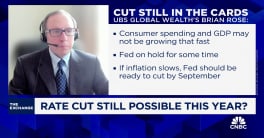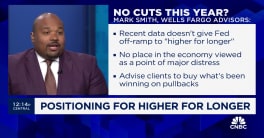Senate Republicans have fired the first two shots in a renewed battle over the Consumer Financial Protection Bureau (CFPB). President Barack Obama recently submitted the name of Richard Cordray, who has served as CFPB director since January 2012, for full Senate confirmation to the post. He had recess-appointed Cordray when Senate Republicans made it clear they would not confirm anyone, regardless of their qualifications, to the post.
On Friday Senate Minority Leader Mitch McConnell and 42 other senators sent the President a letter, nearly identical to one sent to the President in 2011 which said in part, "We have serious concerns about the lack of congressional oversight of the agency and the lack of normal, democratic checks on its sole director, who would wield nearly unprecedented powers. Accordingly, we will continue to oppose the consideration of any nominee, regardless of party affiliation, to be the CFPB director until key structural changes are made to ensure accountability and transparency (at the Bureau)."
The key structural changes demanded in the letter are:
- Establish a bipartisan board of directors to oversee CFPB.
- Establish a safety-and-soundness check for the prudential regulators
- Subject the Bureau to the annual appropriation process
The Dodd-Frank Act which established CFPB set up its funding mechanism through the Federal Reserve rather than through the annual Congressional appropriations process and denies the Fed any authority to deny or adjust the funding request. This was done to insulate the agency from the political pressure that attends the appropriations process.
Also on Friday Senator Jerry Moran (R-KA) filed a bill, The Responsible Consumer Financial Protection Regulations Act of 2013, (S. 205), which would replace the CFPB director with a Senate-confirmed five person commission and incorporating the letter's other two demands.
Moran said of his bill, which he also introduced in 2011, "Allowing a single unelected official to define their own jurisdiction and regulate vast segments of our economy without accountability or restraint is irresponsible regardless of political party. This commonsense legislation brings a variety of perspectives to the Bureau and gives Congress the oversight authority required for such a powerful agency. We stand ready to work with the president to make certain the CFPB's mission of consumer protection is both effective and accountable.
"History has shown that the 'power of the purse' is a critical tool that Congress employs to hold agencies accountable," Sen. Moran continued. "The CFPB has more power and authority than almost any independent agency in history and asking them to present a budget to Congress for approval is a very modest request."
Moran's office points out that the original version of the Dodd-Frank Act passed by the house established CFPB with a five-member commission appointed by the president with no more than three members from the same political party. This provision was removed in conference and a single director replaced the commission.







